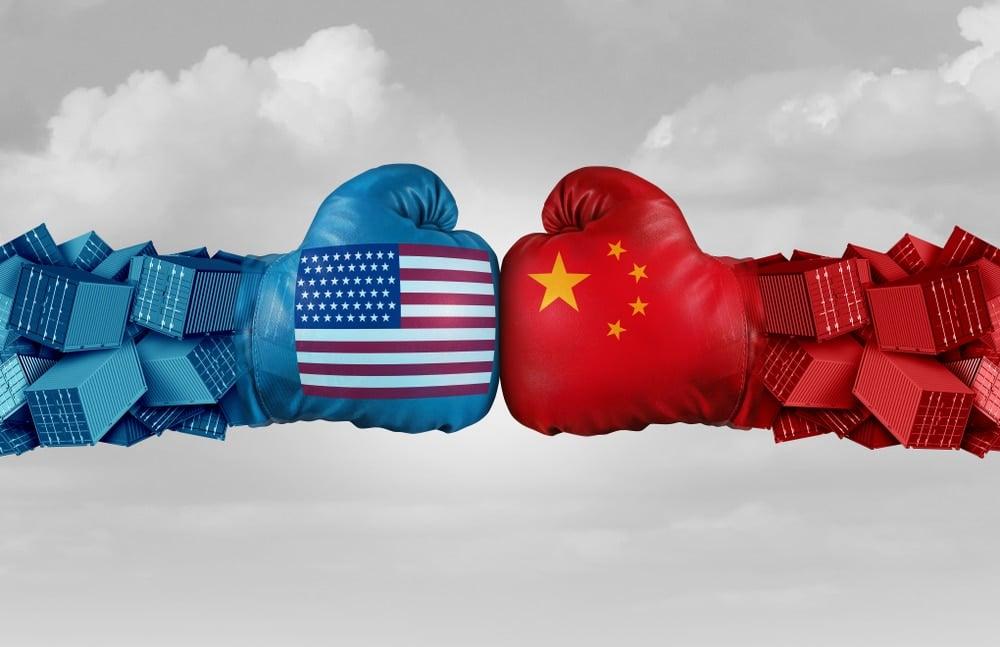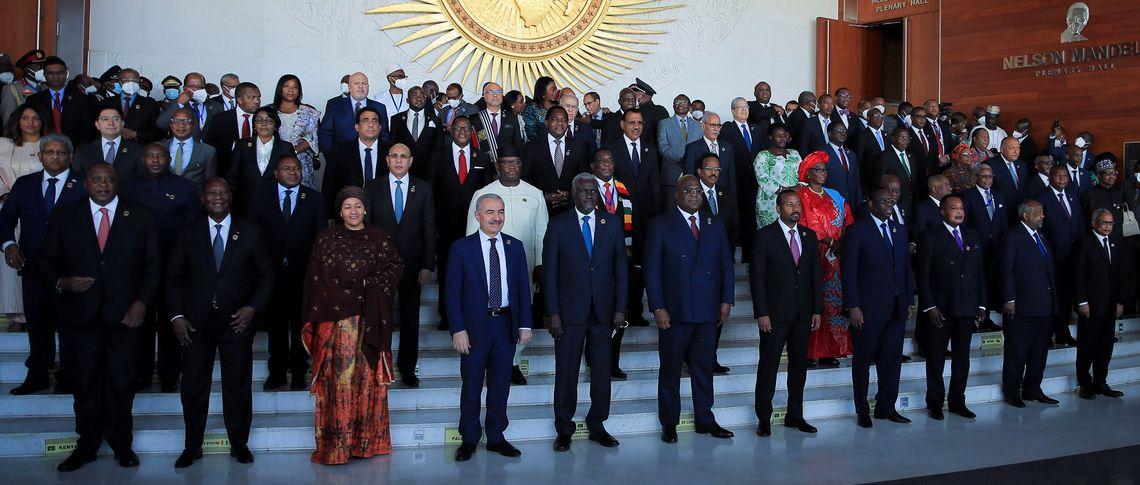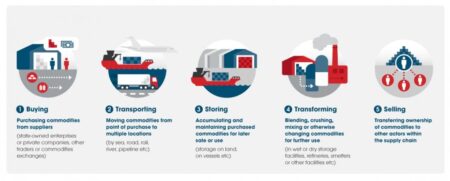In recent years, the escalating trade tensions between the United States and China have emerged as a focal point of global economic discourse, reshaping trade relationships and geopolitical alliances around the world. While much of the narrative centers on tariffs, supply chains, and economic supremacy, the ripple effects of this rivalry extend far beyond the borders of these two superpowers. one of the most intriguing landscapes impacted by this ongoing conflict is Africa, a continent rich in resources and increasingly central to global trade dynamics. This article explores how the US-China trade war is influencing African economies, altering trade patterns, and prompting countries across the continent to navigate the treacherous waters of international relations in search of strategic partnerships and economic stability. By examining the various facets of this multifaceted issue, we aim to shed light on the complex interplay between global power struggles and local economic realities in Africa.
Understanding the Dynamics of US-China Trade Conflicts and Their ripple Effects in Africa
The ongoing trade tensions between the United States and China have sparked a complex web of economic repercussions that extend far beyond their borders. As tariffs and trade barriers escalate, both nations are forced to rethink their supply chains and trade partnerships. This reorientation can lead to heightened competition for African markets, which are strategically positioned as emerging hubs for raw materials and manufacturing. African countries may find themselves in a precarious position, needing to negotiate their relationships with both superpowers while navigating the economic fallout from these trade wars.
Moreover, the shifting dynamics of US-China trade conflicts have notable implications for investment patterns across the African continent. Key effects include:
- Increased chinese investment in African infrastructure, aimed at securing access to essential resources.
- potential decline in US investments,as American firms reassess risks associated with an unpredictable trade environment.
- Opportunities for African enterprises to fill gaps created by reduced imports from either superpower.
To illustrate these shifts, the following table summarizes recent trends in trade and investment flows related to key african economies:
| Country | Chinese Investment (2022) | US Investment (2022) |
|---|---|---|
| nigeria | $7.5 billion | $3.2 billion |
| Kenya | $4.2 billion | $2.1 billion |
| South Africa | $8.3 billion | $4.5 billion |

Examining the Economic Consequences for African Nations Caught in the Crossfire
The ongoing trade wars between the United States and China place African nations in a precarious economic position, especially as they attempt to navigate the shifting sands of international trade dynamics. As both superpowers impose tariffs and adjust trade relations, african countries find their economies affected through several channels:
- Export Demand Fluctuations: African nations heavily reliant on exports may experience decreased demand from China, particularly in sectors like agriculture and raw materials.
- Investment Shifts: US companies might re-evaluate their investment strategies in Africa, as tensions influence their global supply chains.
- Commodity Price volatility: Trade wars frequently enough lead to instability in global commodity prices, impacting economies that are reliant on export revenues.
Moreover, the strategic alliances that African nations forge with either the US or China can have long-lasting implications. As these countries grapple with the fallout, they must consider their regional positions and the broader impacts of trade policy adjustments on the following factors:
| Factor | Potential Impacts |
|---|---|
| Foreign Direct Investment | Increased or decreased flow depending on geopolitical stability |
| Infrastructure Growth | Possible delays as funding sources shift due to trade tensions |
| Employment Opportunities | Job losses in sectors hit by reduced exports or investment withdrawal |

Strategies for African Governments to Navigate the US-China Trade Landscape
To effectively navigate the intricate dynamics of the US-China trade landscape, African governments must adopt multifaceted strategies that leverage their unique position. First,they should enhance regional cooperation by fostering deeper trade agreements within regional blocks such as the African Union or the Southern African Development Community (SADC). This can mitigate vulnerabilities created by external trade tensions while also strengthening intra-African trade. additionally, governments should prioritize infrastructure development, ensuring that they have the necessary logistics and supply chains to efficiently participate in global markets. As an example, investing in transportation and dialog infrastructure can aid in reducing reliance on any specific superpower and improve resilience amidst trade fluctuations.
African nations can further benefit from diversifying their trade partners. By exploring economic partnerships beyond the US and China, such as with the European Union, India, or emerging markets in Southeast Asia, African governments can create a more balanced economic profile.Moreover, establishing strategic partnerships with both the US and China, which include technology transfers and capacity building, woudl enable them to harness resources from both nations. This dual approach not only helps in maintaining diplomatic relations but also empowers local industries to grow, ultimately fostering sustainable economic development.

Opportunities for African Businesses Amidst Geopolitical Tensions and Trade Adjustments
The current geopolitical tensions and ongoing trade wars present unique avenues for African businesses to capitalize on shifting market dynamics. As countries navigate the complexities of tariffs and trade barriers, several African nations stand poised to become choice sourcing hubs for global players seeking to diversify their supply chains. This is particularly relevant for sectors such as agriculture, manufacturing, and technology, where African resources and talent can fill the gaps left by disrupted trade with traditional partners like China. Countries like Ethiopia and Kenya, with their growing tech industries, are increasingly appealing to foreign investors looking for stable alternatives.
Moreover,African businesses can leverage the continent’s wealth of natural resources and agricultural output to forge stronger ties with countries diversifying away from China. Opportunities abound in the following areas:
- Renewable Energy: Increased foreign investment into clean energy projects.
- Infrastructure Development: Enhanced projects funded through international partnerships.
- Consumer Goods: Developing local manufacturing capabilities to meet rising demands.
- Digital Services: Expansion of tech startups ready to serve new markets.
With the right strategies and investments, African businesses can not only mitigate the impacts of global trade disruptions but also emerge as significant players on the world stage.
Future Outlook
the ramifications of the ongoing trade wars between the United states and china extend far beyond their borders, with significant implications for African nations. As these global superpowers vie for economic dominance, African countries find themselves navigating a complex landscape of opportunity and challenge. while the influx of foreign investment and infrastructure development from both the U.S. and China presents prospects for growth, it also raises concerns about dependency and the potential for exploitative practices. The ultimate outcome of this geopolitical struggle will likely influence Africa’s economic future,shaping trade relationships,investment flows,and industrialization efforts. As nations on the continent position themselves amidst these competing interests, it is crucial for policymakers to foster sustainable, equitable growth that benefits their populations. To this end, understanding the dynamics of U.S.-China relations is essential for African leaders seeking to harness the benefits of globalization while safeguarding their sovereignty and economic independence.




